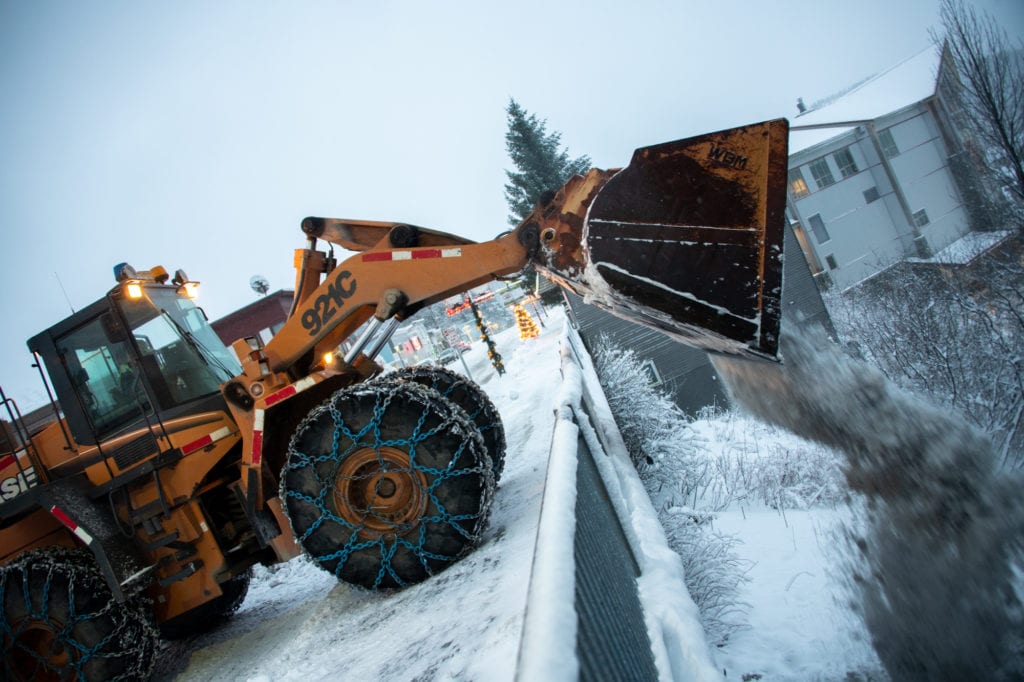
For a department, cutting expenses can be risky business — after all, if you fail to use every penny available to you, it may be seen as an invitation to permanently reduce your funding in the future.
However, doing away with this approach will be key to keeping Cordova running amidst state budget cuts, said City Manager Helen Howarth. Departments must trust city council enough to voluntarily cut their own unnecessary expenses, knowing that they will be able to request raised funding in the future. By the same token, the council must be confident that departments requesting more money really do need it, Howarth said.
After Howarth assumed office Oct. 18, she was tasked with balancing a city budget that had fallen short by $800,000, due mainly to state cuts. Whereas a typical annual budget is created by tweaking that of the previous year, Cordova’s 2020 budget required a thorough overhaul to avoid gutting vital services like health care and education.
“More than once, I went to bed with a lump in my throat asking, ‘What are we going to do?’ ” Howarth said. “We had more expenses than we had resources, and the natural thing for people to say is: cut, cut, cut, cut, cut … That’s a puzzle that everyone faces at some point, whether it’s in their personal finances or at a city level.”
Working closely with city departments, Howarth was able to locate non-essential expenses to cut, sparing further tax increases or reductions to vital services.
“The instruction to everyone was: be realistic,” Howarth said. “Don’t try to force things to work based on an assumed budget. Ask what you need to fulfill the responsibility of your department to the city … In some cases, budgets were increased to reflect reality. It was a really good exercise, and we’re going to continue to do it in the new year for the 2021 budget.”
Some non-essential expenses were discovered in out-of-the-way places, like the Cordova Public Works Department’s sand budget. The department has traditionally budgeted a set amount per year for sand, used to maintain traction on winter roads and then swept up and reclaimed during the spring. However, Howarth found that the department currently has an ample stockpile of sand. By reducing funding to buy new sand for 2020, the city was able to save money without impeding the department’s work.
“Our departments are like MacGyvers,” Howarth said. “They’ll figure out how to make it work and make sure the city’s ready to go. And we need to be ready and willing to support them with resources if it’s needed — not if it’s wanted, if it’s needed.”
City employees have also been asked to shoulder the burden. Non-union staff, whose health insurance was previously covered by the city, are now required to pay 5 percent of premiums. Although Howarth found it painful to inform city employees of this change, the employees understood the city’s position, she said.
The city has also chosen to cut some unfilled staff positions, relying on remaining staff members to pick up the slack, Howarth said. As it is, several Cordova Public Library and Cordova Historical Museum staff already work evenings and cover duties outside their ostensible roles.
“It all falls on staff, unfortunately,” Howarth said. “The burden falls on city employees to maintain services and do it with fewer people.”
The city also bolstered revenue by passing a 6 percent surtax on alcohol, tobacco and marijuana products. An additional proposed sales tax increase was voted down at the city council’s Dec. 18 meeting.
“We were in a position where we had to find revenue in a hurry or make huge cuts to the budget,” Howarth said. “If you buy a six-pack of beer, it’s going to cost you a little bit more, but it’s going to help us contribute to services.”
At the Dec. 18 meeting, Howarth presented the council with a balanced operating and capital budget, which was unanimously approved.
A proposed state budget for the 2020 fiscal year shows no additional cuts, implying the city’s budgetary situation could remain fairly stable. Howarth hopes that expanded harbor funding and projects like Prince William Sound Science Center’s new five-acre campus will keep Cordova’s economy strong through the coming year.
“We’re a hardworking group of people in Cordova, and it’s cool to see all this creative energy coming to the front here,” Howarth said. “There are a lot of positive directions being taken in the community. We’re just going to have to hunker down and figure out how to get through these sticky wickets.”





